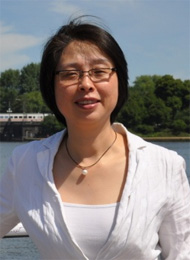欧洲代表—英文版
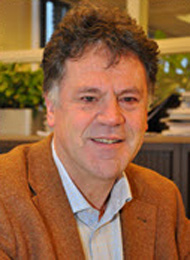 Jan van den Akker is Director General of SLO (Netherlands Institute for Curriculum Development).
Jan van den Akker is Director General of SLO (Netherlands Institute for Curriculum Development).
Besides he is (part-time) professor at the
He has a broad international orientation, including supervision and consultancy for many R&D projects in various continents, especially sub-Saharan Africa, and
Main areas of expertise: curriculum policy making; curriculum development in interaction with teacher learning and school development; methodology of design research in education.
Jenne van der Velde
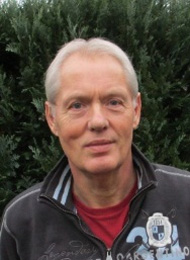 Coordinator International Affairs. Born in
Coordinator International Affairs. Born in
In 1982 I was employed in SLO (The Netherlands National Institute for Curriculum Development). For a couple of years I worked as technology curriculum developer in SLO. Afterwards I was involved in other topics like human rights, minorities, school development, school management and school-based curriculum development. In SLO I have had several responsibilities and functions, for instance Head of the Department of “Veldadvisering”, Communication, and Facilities.
Since 2005 I am the coordinator of International Affairs of SLO At this moment I am working in a project for school-based curriculum development in
Wout Ottevanger
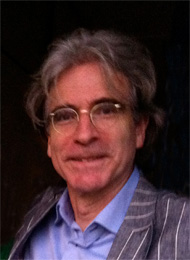 Trained as chemist and as a teacher at
Trained as chemist and as a teacher at
Employed as a school teacher in science in the
Since 1999 I am based in the
My work at SLO comprises evaluation studies of the new science and mathematics pilot programmes in senior secondary education, project leader of project concretization of core goals in science in junior secondary education in the Netherlands, two EU science education projects and a large curriculum reform project in basic education in Surinam (in the Caribbean). As a curriculum developer I contribute to the School-based curriculum development at schools in and around
Nienke Nieveen
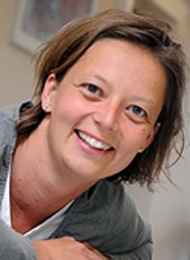 Nienke Nieveen is senior researcher at SLO [Netherlands Institute for Curriculum Development]. Her work centers on coordinating the Institute's evaluation activities and the thematic strand 'Curriculum and teachers'. She has been engaged in several projects related to school-based curriculum development and professional development of teachers in the field of curriculum development. Her dissertation, in 1997, was based on a four-year design research project in the field of curriculum design and evaluation. From 1997 to 2007 she was appointed assistant professor at the
Nienke Nieveen is senior researcher at SLO [Netherlands Institute for Curriculum Development]. Her work centers on coordinating the Institute's evaluation activities and the thematic strand 'Curriculum and teachers'. She has been engaged in several projects related to school-based curriculum development and professional development of teachers in the field of curriculum development. Her dissertation, in 1997, was based on a four-year design research project in the field of curriculum design and evaluation. From 1997 to 2007 she was appointed assistant professor at the
Jan Berkvens
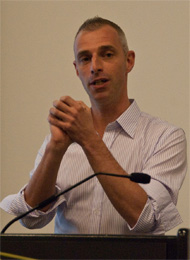 After finishing teacher education, I taught biology and science in secondary education for 10 years. Interested in pedagogy, I successively studied educational sciences at
After finishing teacher education, I taught biology and science in secondary education for 10 years. Interested in pedagogy, I successively studied educational sciences at
In 2009, I started working with SLO, as a curriculum developer and project coordinator. My last project involved the development of a basic education curriculum for all 4-15 year olds, in the
Nico Verloop
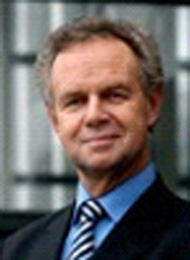 After being trained as a teacher and graduating in educational studies (
After being trained as a teacher and graduating in educational studies (
Henk Frencken
 He was trained as a Biology Educator and worked in educational programs in the
He was trained as a Biology Educator and worked in educational programs in the
In the year 2000 he joined
He is engaged in many international projects, including several in secondary and higher education in
Stephan Meershoek
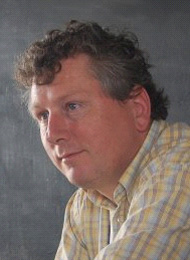 I trained as a nutritionist at
I trained as a nutritionist at
Since 2009 I have managed the education services department of the European Platform. This department runs school networks and school support programmes on bilingual education, early language learning (ages 4-12), European and international orientation, and the teaching of modern foreign languages (mainly French and German).
Anke van Kampen
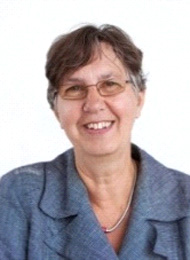 Anke van Kampen was born in
Anke van Kampen was born in
Anita Kärner
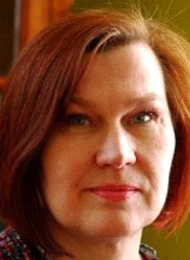 Born in
Born in
Afterwards I started as librarian in the Scientific Library of Tartu State University, part-time teacher of Estonian language and literature at the Faculty of Philology and since 1985 as the language editor at the University Publishing House.
Since 1995 until 2007 I was employed in the Office of academic affairs at the University of Tartu as a post-graduate and doctoral study adviser and expert.I was involved in the development project “Development of a complex of measures for strengthening doctoral studies in Estonia” (2003-2004) funded by European Union Phare programme.
In the years of 2005- 2008 I led a subtheme in the research and development project “Assurance system for quality, effectiveness and sustainability of doctoral studies in Estonian universities” funded by European Social Fund.
In 2009 I was awarded the PhD degree in pedagogy from the
Since 2007 to 2011 I was head of the Centre for Educational Research and Curriculum Development. At present time I am senior researcher at this Centre.
My current research activities are related to school innovation. I am involved in the research project studying theoretical basis and their applications to the Estonian national curricula.
Alan Armstrong
 He and his Directorate team have been actively involved in working with all sectors of education to develop and support the implementation of Curriculum for Excellence. This has included preparing support for practitioners through exemplification for the eight curriculum areas, and the organisation of curriculum delivery in ways that take account of Curriculum for Excellence policies and reflect local contexts and priorities.
He and his Directorate team have been actively involved in working with all sectors of education to develop and support the implementation of Curriculum for Excellence. This has included preparing support for practitioners through exemplification for the eight curriculum areas, and the organisation of curriculum delivery in ways that take account of Curriculum for Excellence policies and reflect local contexts and priorities.
Through very close liaison with education authorities, his Directorate provides support and guidance to promote key national initiatives, such as approaches to assessment that underpin Curriculum for Excellence. Current activities include building capacity across education authorities and their partners in taking forward key aspects of Quality Assurance and Moderation, and in preparing initial materials for inclusion in the National Assessment Resource.
Before joining Education Scotland, Alan was a Director of Learning and Teaching Scotland. As a member of HM Inspectorate of Education, he held various posts, including National Specialist and District Inspector, and was seconded within Scottish Government to work on policy initiatives.
Maryline Coquidé
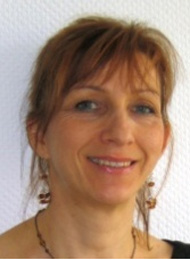 Maryline Coquidé’s research covers science education and focuses on the reconfiguration of scientific curriculum of compulsory education.
Maryline Coquidé’s research covers science education and focuses on the reconfiguration of scientific curriculum of compulsory education.
It intends to cover all areas of education, from nursery school to university, from formal education to ongoing training. It also aims at developing special training schemes (such as in healthcare, urban planning, new technologies etc.), dedicated to a wide-range of age groups and various social and cultural backgrounds. Besides, it is opening up to other stakeholders including local authorities, associations and businesses.
On the international level, the French Institute of Education is involved in the main research networks dealing with education system. Playing a key role in modern society, the French Institute of Education aims at feeding the public debate on all the main issues concerning education.
Leena Irmeli Halinen
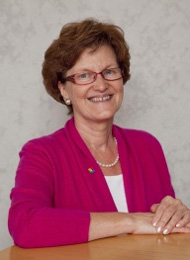 Ms. Halinen has worked in several national evaluation and development projects since the
Ms. Halinen has worked in several national evaluation and development projects since the
Ms. Halinen is a member of the Finnish National Commission for UNESCO. Since 2006 Ms. Halinen is the Focal Point of Nordic and Baltic Community of Practice for International Bureau of Education (IBE) of UNESCO, coordinating the curriculum co-operation. She has worked as a curriculum expert for UNESCO and for the Finnish Ministries of Education and of Foreign Affairs in many occasions, for instance in China-Europe cooperation project for Curriculum Development, in different European countries, with Arab, Latin American and Caribbean countries, and in Nepal Curriculum Development Project. She has written several articles, published in
Attilla Varga
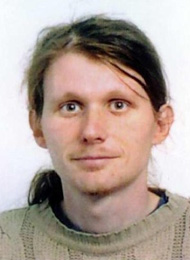 Born in
Born in
Since its foundation in 2000 I have coordinated the Hungarian Eco-school Network which has more than 540 member school at the moment. I am the Hungarian National coordinator of Environmental and School Initiative (ENSI) network. I have participated in several international co-operations aiming at promote school development and researches mainly in ESD (e.g. EU Comenius SUPPORT project), but I have also some experiences in drama education researches (DICE project).
Beside scientific activities I give lectures on education for sustainability and environmental awareness at Eötvös Loránd and BME universities, and I am involved in the work of several NGOs and bodies, I am a member of the Hungarian National Commission for UNESCO, of Hungarian Society of Environmental Education, and the board of Free Waldorf School of Fót.
At the moment I am participating in the process of development of a new
curriculum system for Hungarian public education, and involved in activities aiming to maintain and develop the Hungarian Eco-school Network.
Gregor Mohorčič, M. Sc.
I finished master studies at the Faculty of Mathematics and Physics of the University in
Brigita Žarkovič Adlešič
 Brigita Žarkovič Adlešič has studied Pedagogy and English at Faculty of Arts in
Brigita Žarkovič Adlešič has studied Pedagogy and English at Faculty of Arts in
For eight years, she has been an active member of National Programme Council for in-service teacher training whose main responsibility is to provide the national policy. She is involved in research projects and in counselling activities. She has participated in numerous Slovenian and international projects and conferences, focusing on professional development, evaluation and mentoring.
Her publications are dealing with classroom management, introducing change and mentoring. At the moment she works as a Head of Centre for Professional Development at the National Education Institute and the chair of Research and Development Centre for In service Learning at ATEE – Association of Teacher Education of Europe. In 2006 she has also organised 5-days international course on Mentoring a journey of Learning as a result of 3 years’ Comenius Project MINT. She is a contact person in CIDREE and she is actively involved in the project on assessment.
Ulla Lindqvist
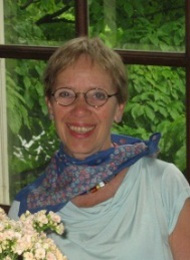 Current employment and responsibilities
Current employment and responsibilities
During the last years I have had a specific focus on the reform program regarding the 2011
I have got valuable experiences as project manager for national quality inspections and educational audits. The inspections focused on specific themes like mathematics teaching and schools´ work with equivalent and fair assessment and grading.
International cooperation: contact person for Cidree, before that Oecd/Ines network on teaching and learning. Participated in highly interesting Chinese –European conferences in
Renato Opertti
 (a)Sociologist, title obtained in 12/1987, field of study sociology, major subject social policies and education, Public University of Uruguay (UDELAR)
(a)Sociologist, title obtained in 12/1987, field of study sociology, major subject social policies and education, Public University of Uruguay (UDELAR)
(b)Master in Educational Research, obtained in 7/1993, field of study educational research, major subject educational policies, IRDC (
Kate Lin (Yu-Hao)
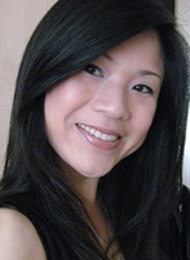 Born in
Born in
Subsequent to the completion of my PhD, I returned to
In 2008, I recieved a visiting research fellowship at the
Since 2009, I have been working with the International Baccalaureate Organisation as a research manager for programme development responsible for conceptualising and managing projects related to pedagogical and learning approaches of the IB educational philosophies and initiatives, approaches to curriculum design as well as dispositions and competences of global citizens in the 21st century. In addition, I also deliver educational research training to our curriculum developers through the development of online modules and workshops in collaboration with internal and external expertise.
Bingyan Wang
2010. Master of Educational Science at
2000. Master of Business Management at
Working experience:
1989-2001: Project Manager and Policy Advisor in international business development in commercial business units and government organizations in
2001-2012: Independent Consultant and Coach in cross-culture business development (KLM Club
Research interest:
Teacher professional development in curriculum innovation environment; Workplace learning and organizational learning, Corporate Curriculum, Education and Leadership.


